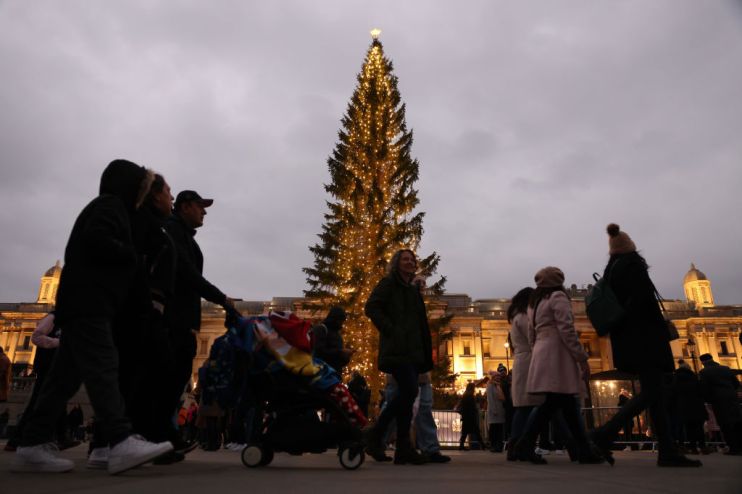London venues warn they will haemorrhage sales if rail strikes go ahead this Christmas

London restaurants have warned they will haemorrhage sales should planned railway strikes go ahead this month, as union bosses rejected a new pay offer over the week.
Searcys champagne bar and restaurant chain, which has venues at the Gherkin and St Pancras International station, said it was worried it would take a 30 per cent hit to its revenue this month.
Hospitality businesses in the capital have been gearing up for their first Christmas void of Covid restrictions in three years.
However, business owners told CityA.M. they have already experienced a number of cancellations for Christmas parties, after strike dates fall in the high street’s busiest trading week.
Walkouts are set to take place on 13, 14, 16, 17 December as well as 3, 4, 6, 7 January.
On Sunday evening, railway worker union RMT yesterday rejected an eight per cent pay increase offer, arguing it didn’t meet “any of our criteria” on job security, pay, and working conditions.
Pub and restaurant bosses have urged all parties to hash out a last minute solution and do whatever it takes to ensure walk-outs are called off.
Strikes were “incredibly harmful” to venues, as they sought to rebuild from the pandemic and struggled with rising costs this winter, Paul Jackson managing director of Searcys, told CityA.M.
The champagne bar and catering firm had seen a dip of 30 per cent to revenues in November due to train strikes and feared it would experience the same this month.
The slew of walk-outs “couldn’t come at a worse time for the hospitality industry,” according to the founders of house party-inspired bar and restaurant concept The Little Door & Co.
The firm’s four London venues had seen “multiple cancellations”, making “a bleak three years” for the sector now, founder Kamran Dehdashti, told CityA.M.
Jamie Hazeelsaid, who also runs the chain, said not enough attention was being given to “the vast knock on effects” of the strikes on the industry.
“We are losing significant revenue on our key trading period of the year – not to mention the difficulty of staffing the venues for those who can come,” Hazeelsaid added.
The walkout will cost the hospitality industry £1.5bn in lost sales, according to UKHospitality boss Kate Nicholls.
She dubbed news of the rejected pay offer as “devastating news” for her group’s members.
Rail unions were “only looking out for themselves,” while “people’s jobs are at risk”, the CEO of West End landlord Shaftesbury told CityA.M. last week.
If West End firms were not able to reap the rewards of the Christmas shopping period next month, that trade will be “lost and gone forever,” Brian Bickell said.
It comes as city centres face a “downbeat” start to next year, as cash-strapped Brits pull back from discretionary spending after Christmas, he added.
According to train operator representative the Rail Delivery Group, the offer rejected on Sunday was “fair and affordable” as it would provide workers with an increased salary early in the new year as well as job security until April 2024.
Transport secretary Mark Harper – who will appear on Wednesday in front of the Commons’ transport select committee – called the situation “incredibly disappointing, and unfair to the public, passengers and the rail workforce who want a deal.”
Both the unions and the train operators need to compromise to bring the ongoing railway strikes to an end, according to Labour leader Sir Keir Starmer.
“Both sides need to compromise, both sides need to finish the negotiations and the government needs to drive them forward,” Starmer told ITV’s Good Morning Britain.
“The government’s been sitting on its hands on this. That’s not good enough.”
Many London businesses would be left “operating with a continued sense of uncertainty” in the event of “a lack of compromise on both sides,” Ruth Duston, CEO of Westminster business group London HQ and MD of Primera Corp said.
“This constant limbo just adds to the list of difficulties they face especially at a time when the hospitality and retail sectors are reliant on the festive footfall. It’s tedious, unnecessary and detrimental for both business and locals,” she added.
Last month, railway minister Huw Merriman said that the ongoing railway strikes had cost the UK economy £500m this year so far.